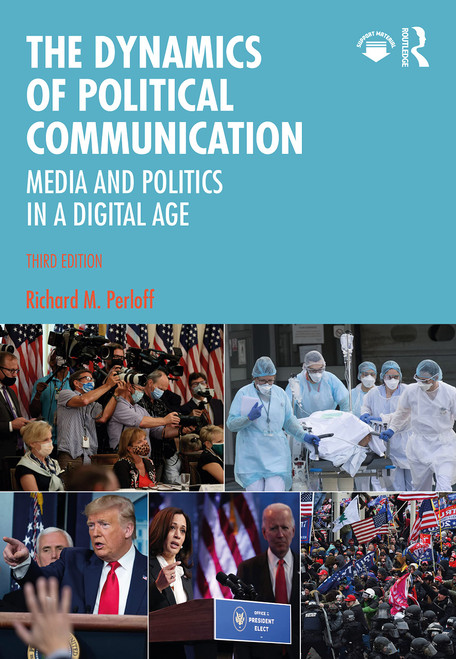The Dynamics of Political Communication blends the drama, excitement, and chaos of politics with the extensive body of social science research that maps in detail the role of the communication media in our political life.
Maxwell McCombs, University of Texas at Austin
The effortlessness and accessibility with which this text walks the reader through theories, current examples and exercises will also make it a very popular textbook for undergraduate courses. I look forward to assigning it in my classes.
Dietram A. Scheufele, University of Wisconsin-Madison
Written in an easily accessible style and filled with timely and interesting examples, this textbook would be a first-rate addition to any introductory course on the topic.
Gadi Wolfsfeld, Author of Making Sense of Media and Politics: Five Principles in Political Communication
an engaging and timely analysis of the central role of media in American politics. The book provides multiple perspectives to stimulate critical thought and reflection.
Ann N. Crigler, University of Southern California
Perloff has offered a systematic overview of the topic that allows us to make sense of the chaotic communication environment we are enveloped within. A must-read for anyone looking to introduce themselves to this important research area.
R. Lance Holbert, The Ohio State University
What impact do news and political advertising have on us? How do candidates use media to persuade us as voters? Are we informed adequately about political issues? Do 21st-century political communications measure up to democratic ideals? The Dynamics of Political Communication: Media and Politics in a Digital Age explores these issues and guides us through current political communication theories and beliefs.
Author Richard M. Perloff details the fluid landscape of political communication and offers us an engaging introduction to the field and a thorough tour of the discipline. He examines essential concepts in this arena, such as agenda-setting, agenda-building, framing, political socialization, and issues of bias that are part of campaign news. Designed to provide an understanding and appreciation of the principles involved in political communication along with methods of research and hypothesis-testing, each chapter includes materials that challenge us by encouraging reflection on controversial matters and providing links to online examples of real-life political communication. The texts companion website provides expanded resources for students as well as materials for instructors to use in the classroom.
The Dynamics of Political Communication immerses readers in contemporary events through its coverage of online campaigning, effects of negative advertising, issues of gender bias in campaign politics, and image-management strategies in the 2012 campaign. It will prepare you to survey the current political landscape with a more critical eye, and encourage a greater understanding of the challenges and occurrences presented in this constantly evolving field.











